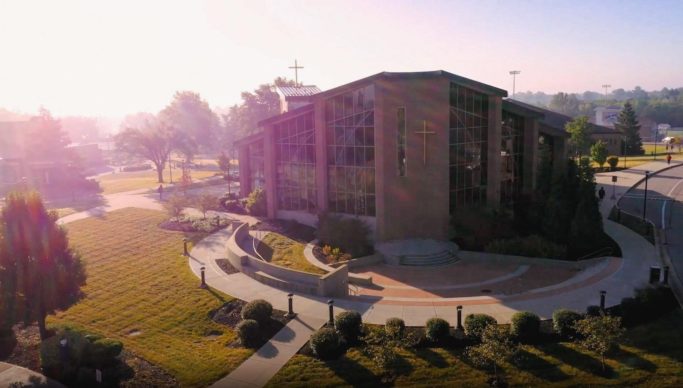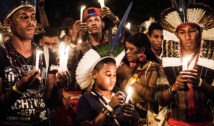
A Talk on International Religious Freedom
- By Ash D --
- 17 Nov 2022 --
On November 3, 2022, at Thomas More University (TMU), an event was held with past and present Ambassadors-at-Large for International Religious Freedom—Rashad Hussain and Rabbi David Saperstein. Titled “Comparative Perspectives on International Religious Freedom,” the event was organized by the University’s Institute for Religious Liberty (IRL).
The event opened with a prayer from Msgr. Gerald Twaddell, followed by an address from TMU President Dr. Joseph L. Chillo in which he described the school and the history of the IRL.
The first keynote speaker was Rashad Hussain, U.S. Ambassador-at-Large for International Religious Freedom. He first took up advocating against discriminatory laws around the world, which includes apostasy or heresy laws, and the enforcement of religious freedom laws that are on the books but at times neglected in practice. Sometimes he may receive a message in the middle of the night on individual cases where a single person’s life is at risk because of these violations. He also described when heads of state or ministers of other nations ask him, “who are you as Americans…to advocate for religious freedom in other countries of the world?” Hussain considers the U.S. distinctly well suited to this as a country founded on religious freedom and as it is a country of immigrants, who don’t forget their ancestors and, generations down the line, advocate and make sure their elected representatives do everything possible to stand up for religious values overseas.
The second keynote speaker, Rabbi David Saperstein, lawyer and former U.S, Ambassador-at-Large for International Religious Freedom, opened with an introduction to the religious considerations in the founding of the United States: George Washington’s letter to the Hebrew Congregation in Newport supporting Jews, John Locke’s Letter Concerning Toleration supporting Muslims, and Richard Henry Lee’s argument of freedom embracing the Hindus. He explained that the fundamental shift in the treatment of rights in the U.S. was that certain rights were inalienable and were not afforded to you by the group, but protected by the group. He went on to explain the trend stretching from 1945 to 2006 when democracy and human rights were expanding throughout the world, but since 2006 that trend has reversed, with authoritarian governments and regulations of religion. He said that serious religious oppression occurs in countries that have 80% of the world’s population. Saperstein closed by explaining the work the State Department does to improve the situation, with interfaith coalitions, training lawyers to defend religious freedom, and the annual Report On International Religious Freedom that has become the standard on religious freedom globally with countries like Amsterdam distributing it as the guide for their Foreign Service Officers.
Following their talks, the two had a question-and-answer period with those attending. One attendee asked about antisemitism coming not only from the right in fascist movements but also from the left. Rabbi Saperstein explained there are “traditional conspiracy theories” that come from the far right and have been dealt with by the ADL for decades in America, but that it also comes from Muslims, which are neither left nor right, and the issue is to do with Israel, as Palestinians hold the belief that Israel is their historical homeland and hold this as strongly as do Jews. Further, he explained some left-wing groups are critical of the state of Israel, which at times the groups may be too quickly deemed antisemitic by supporters of Israel, and that there is a line between legitimate criticism of Israeli policy and antisemitism.
You can see the complete event on the Thomas More University YouTube channel.



















